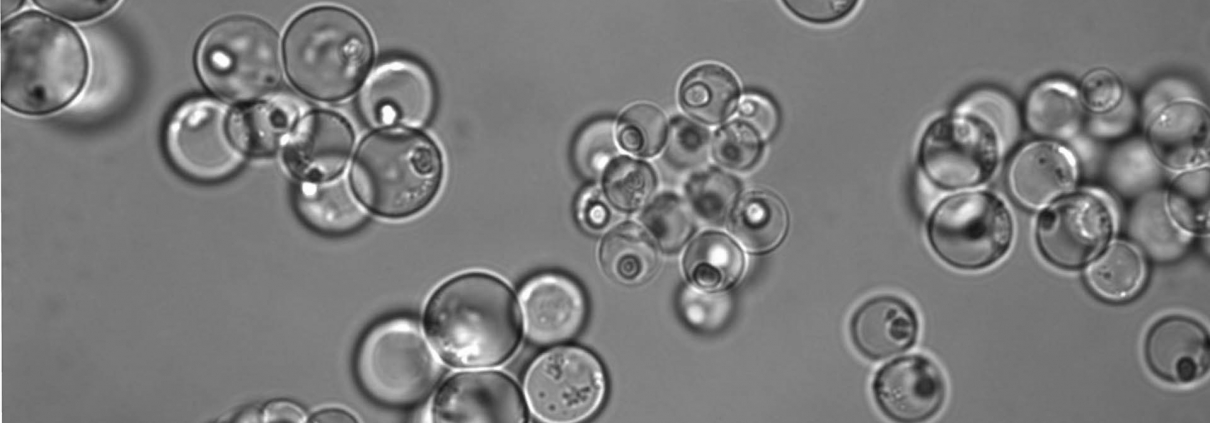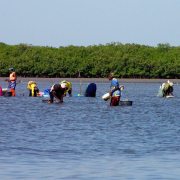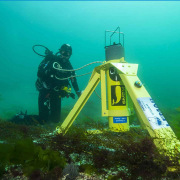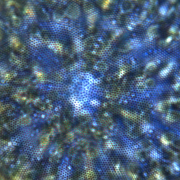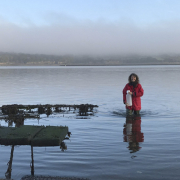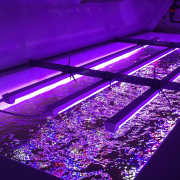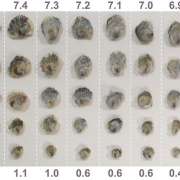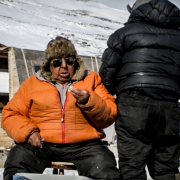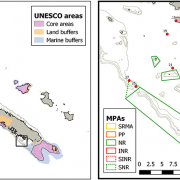Integrative host-microorganism-environment approaches
In a context of climate change, the emergence of diseases significantly modifies the dynamics of host and pathogenic populations, but also the networks of more complex interactions at different scales in the ecosystem
Marine ecosystems are made up of complex interaction networks integrating different levels of temporal and spatial scales. However, global changes can modify these networks by increasing the intensity and virulence of infectious diseases. It is now essential to have a detailed understanding of host-microorganism-environment systems, which requires integrative approaches including the study of all symbiotic organisms (viruses, prokaryotes or eukaryotes) and more broadly of host-associated microbiota, as well as the physiology of host or vector organisms (e.g. immune system and inflammation, metabolism and nutrition), all within a global environmental approach. This integrative approach, which is a growing strength within LEMAR, will focus on understanding these associations by calling on multiple skills (“omics”, genetics, epigenetics, cellular functional analyses), allowing us to integrate new concepts of evolutionary ecology and health (“One Health”) into our research, which will disrupt our paradigms on host-microorganism-environment systems.
In a context of climate change, the emergence of diseases significantly modifies the dynamics of host and pathogenic populations, but also the networks of more complex interactions at different scales in the ecosystem

